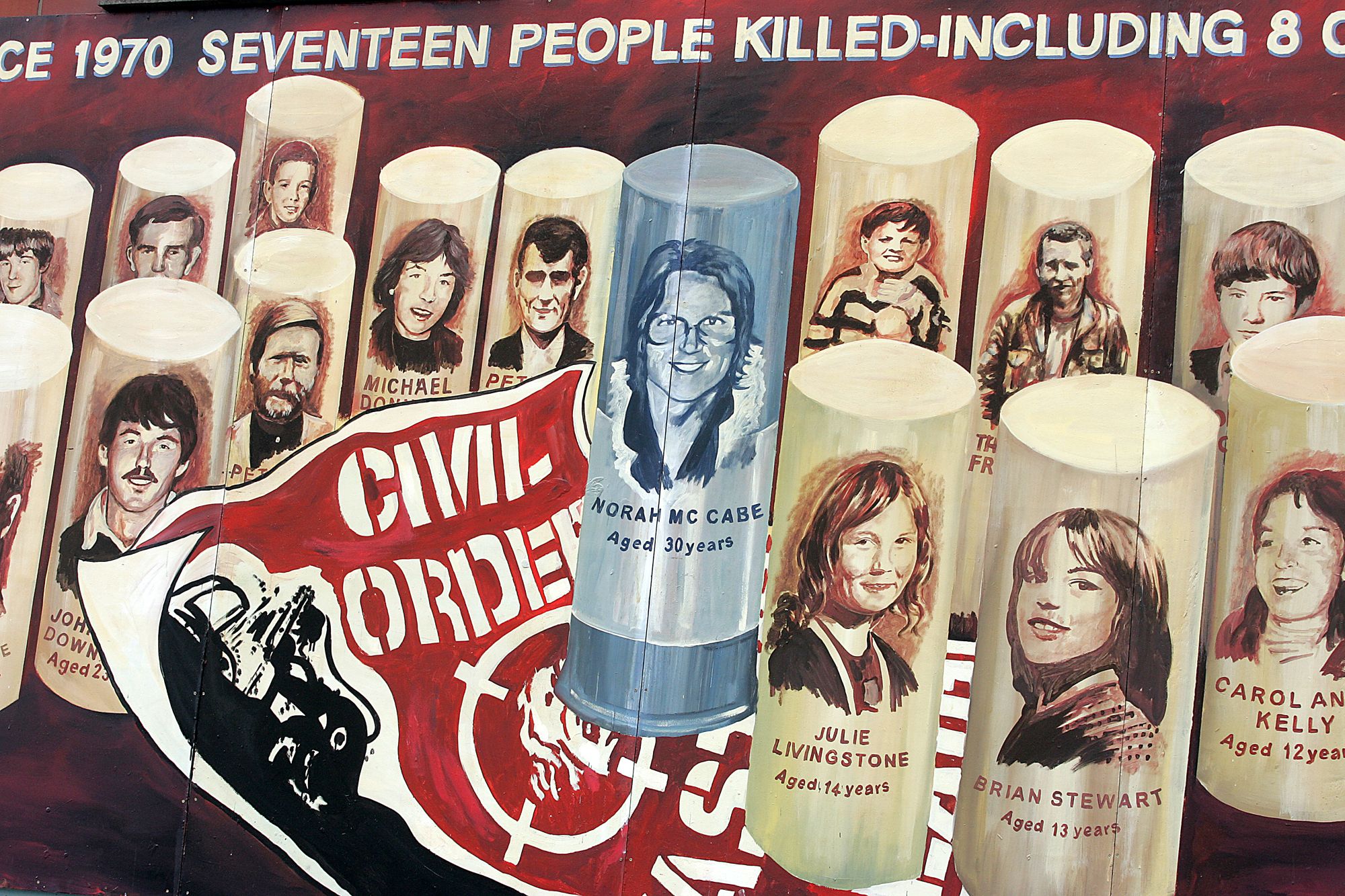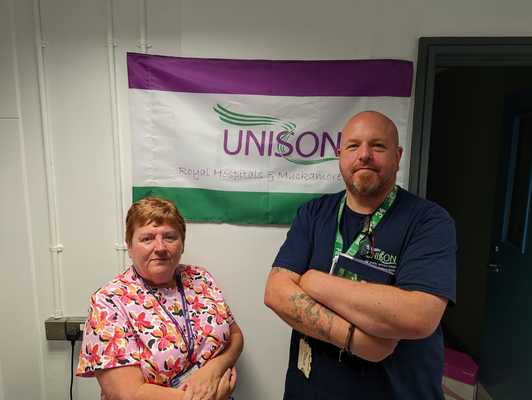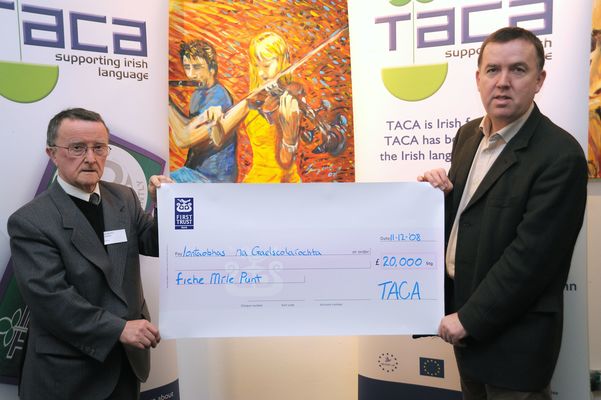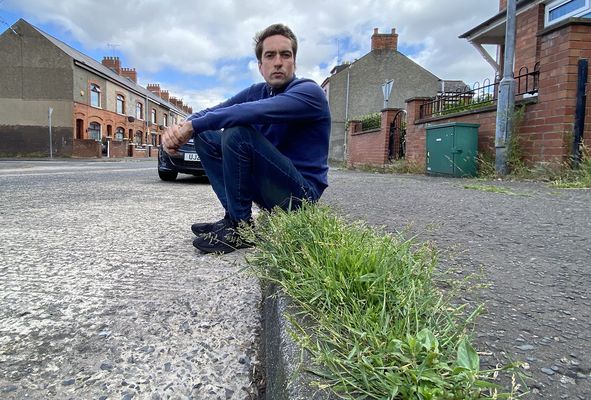RELATIVES for Justice launched a comprehensive new report on plastic bullets on Saturday in a tie-up with the AOH in the US.
‘Plastic Justice’ is an extensive report on the history, legacy and the deadly impact of the plastic bullet.
CUT DOWN: The funeral of Carol Ann Kelly through Twinbrook in May 1981. The 12-year-old was hit by a plastic bullet fired by British soldiers as she returned from the shops.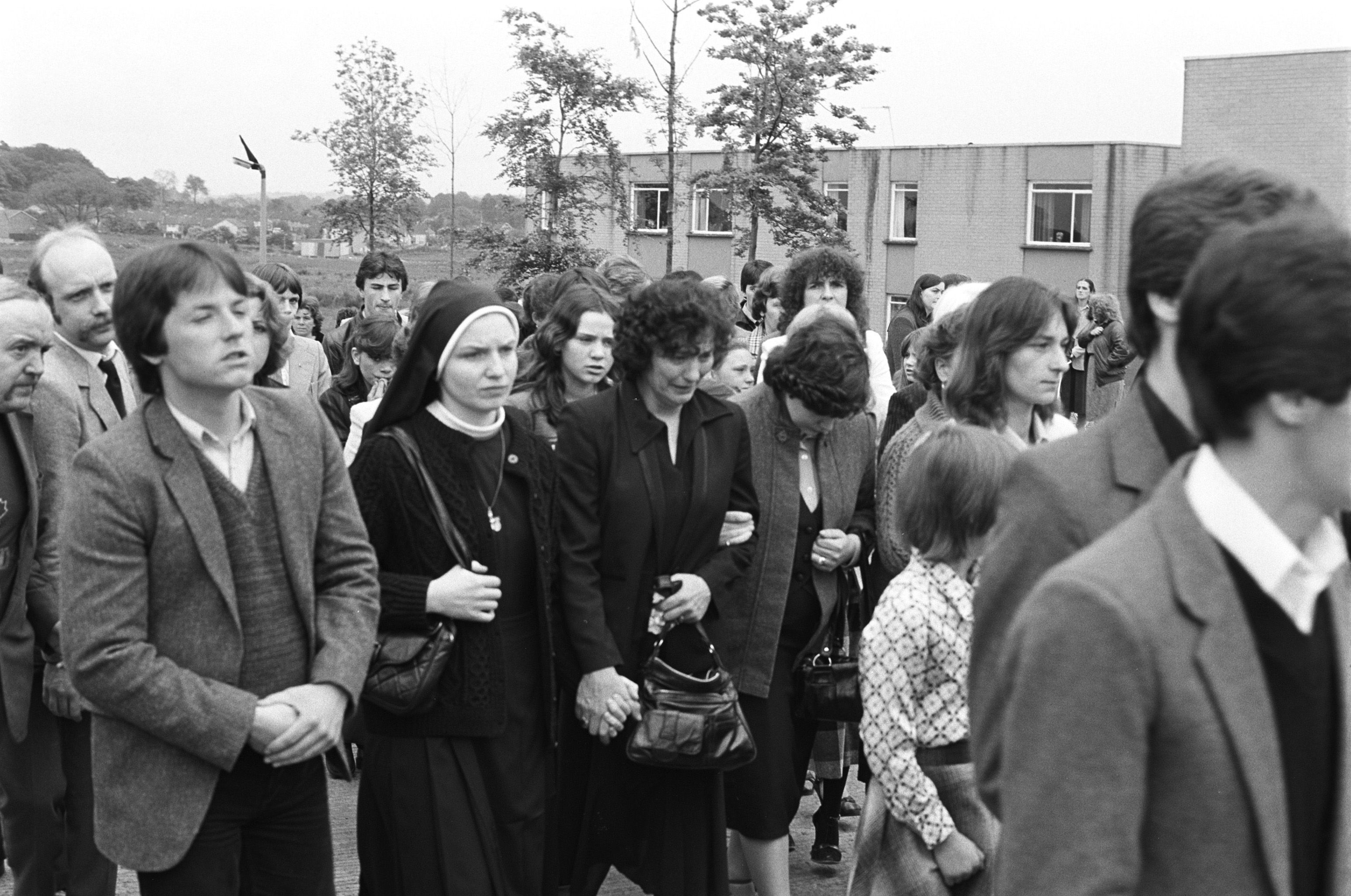
The report, which will was launched in conjunction with the Ancient Order of Hibernians (AOH) in the United States, includes eye-opening information on the development of the lethal rounds, their medical impact, and their misuse and abuse.
As part of its overarching study of the use of plastic bullets in Ireland, the report gives an in-depth personal history of all 17 people who were killed by plastic bullets in the north.
ABUSE: Mark Thompson of RFJ addressing the virtual launch of new report
Report author Peadar Thompson said he hopes he hopes to help reinvigorate the conversation about the banning of plastic bullets.
“We want to get people talking about plastic bullets again and get people to remember it again, because at the end of the day these weapons still aren’t banned,” he said.
“There are still 17 families that have still to see any justice.
“It’s about raising awareness that this hasn’t gone away and these families deserve justice. The public deserves to know about these weapons as well.
“Across the water in America we’ve seen plastic bullets being used against Black Lives Matter protesters, so it has become topical to talk about these issues.”
He added: “This will be very tough to think about for the victims of plastic bullets, but I hope the report will give them a lift and show that people still care about them, and people still care about the fact that they deserve thr truth and they deserve justice.”
AOH Freedom for All Ireland Chairman, Martin Galvin, who witnessed the 1984 killing of John Downes by a plastic bullet, said: “Plastic Justice is key chapter in the story of British repression. This groundbreaking report will highlight political and legal strategies used by the British to deny truth and real justice to victims' families, such as treating victims as criminals or rioters to justify murders and intimidate witnesses.
“Crucial documents and files are systematically withheld. Inquests or legacy investigations which could shed light on these murders are arbitrarily denied. Not one British trooper or Royal Ulster Constabulary member was ever found guilty for any of these 17 killings, even where victims were children."

